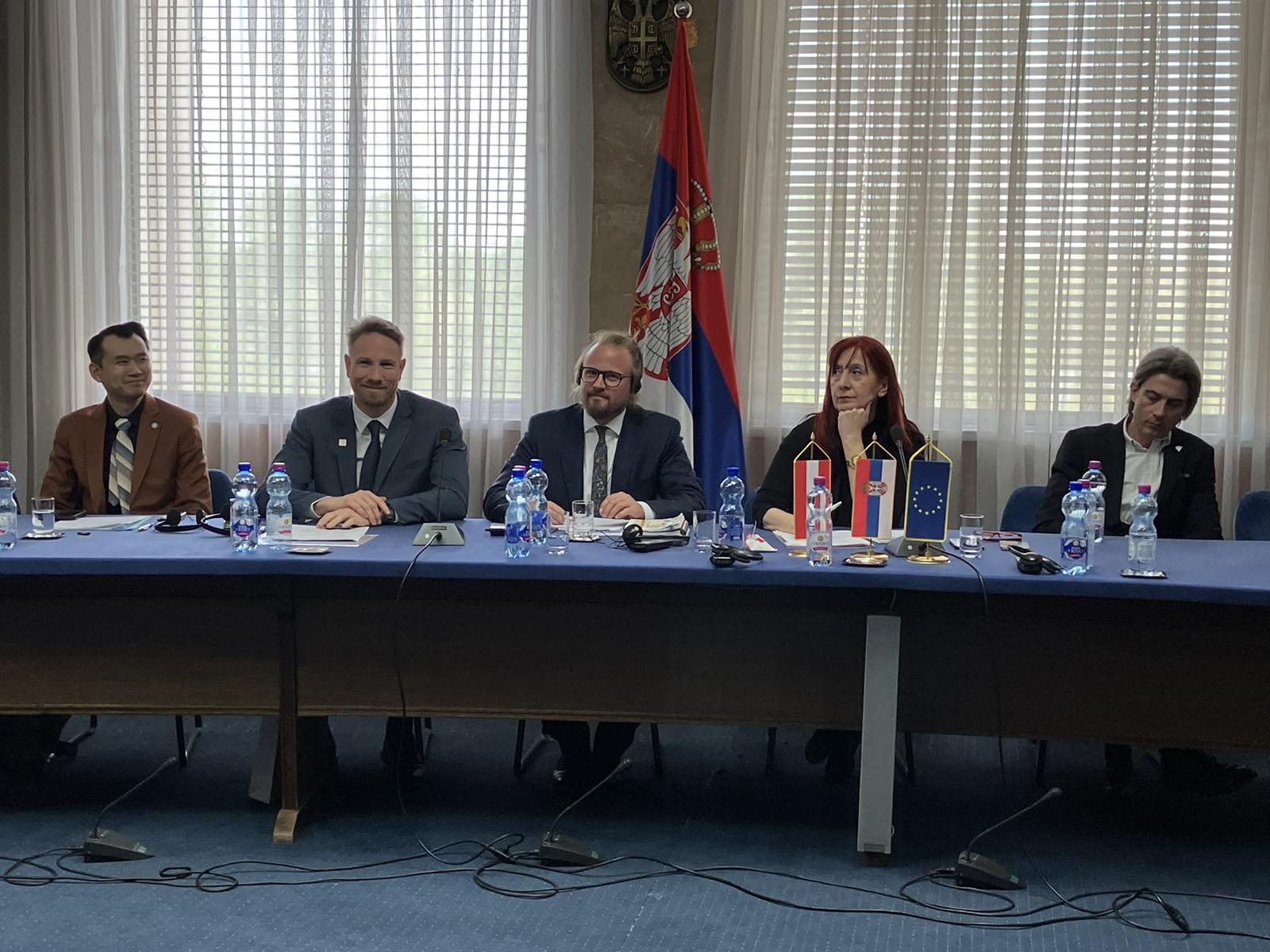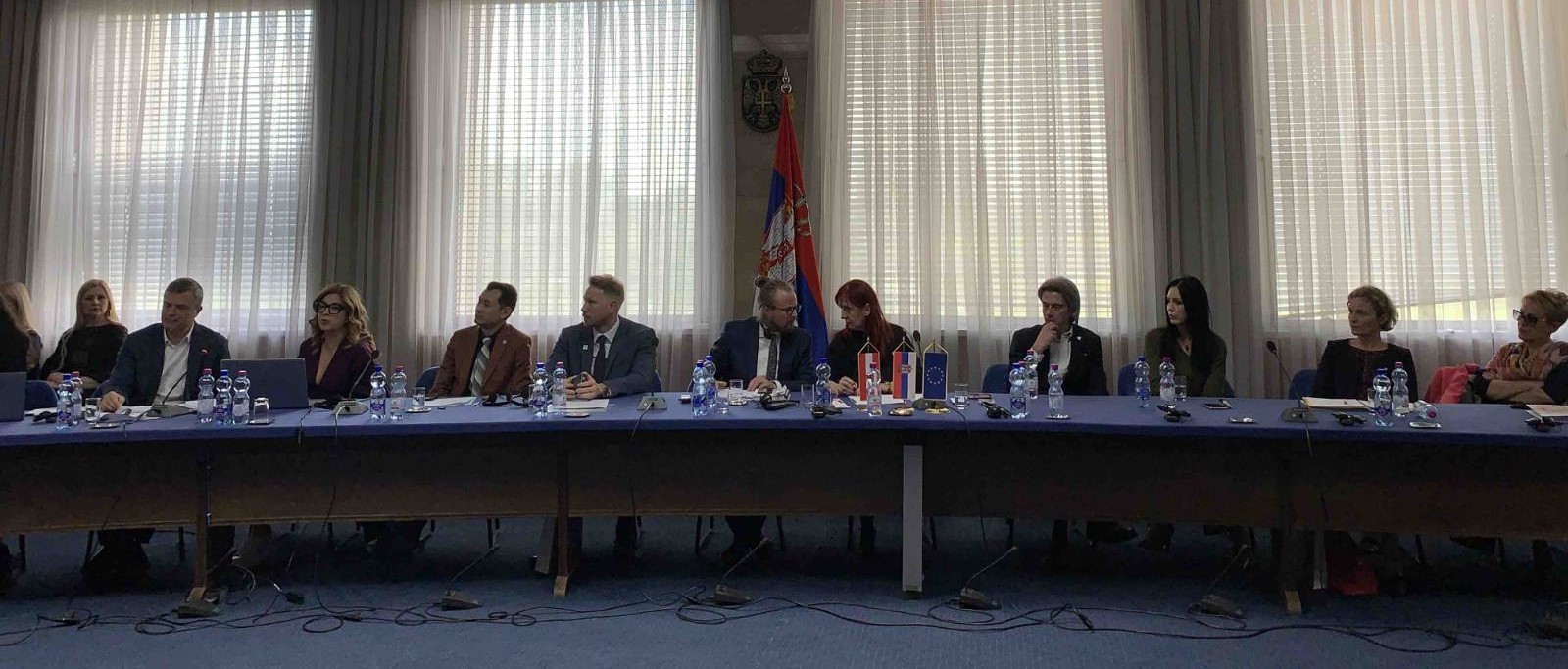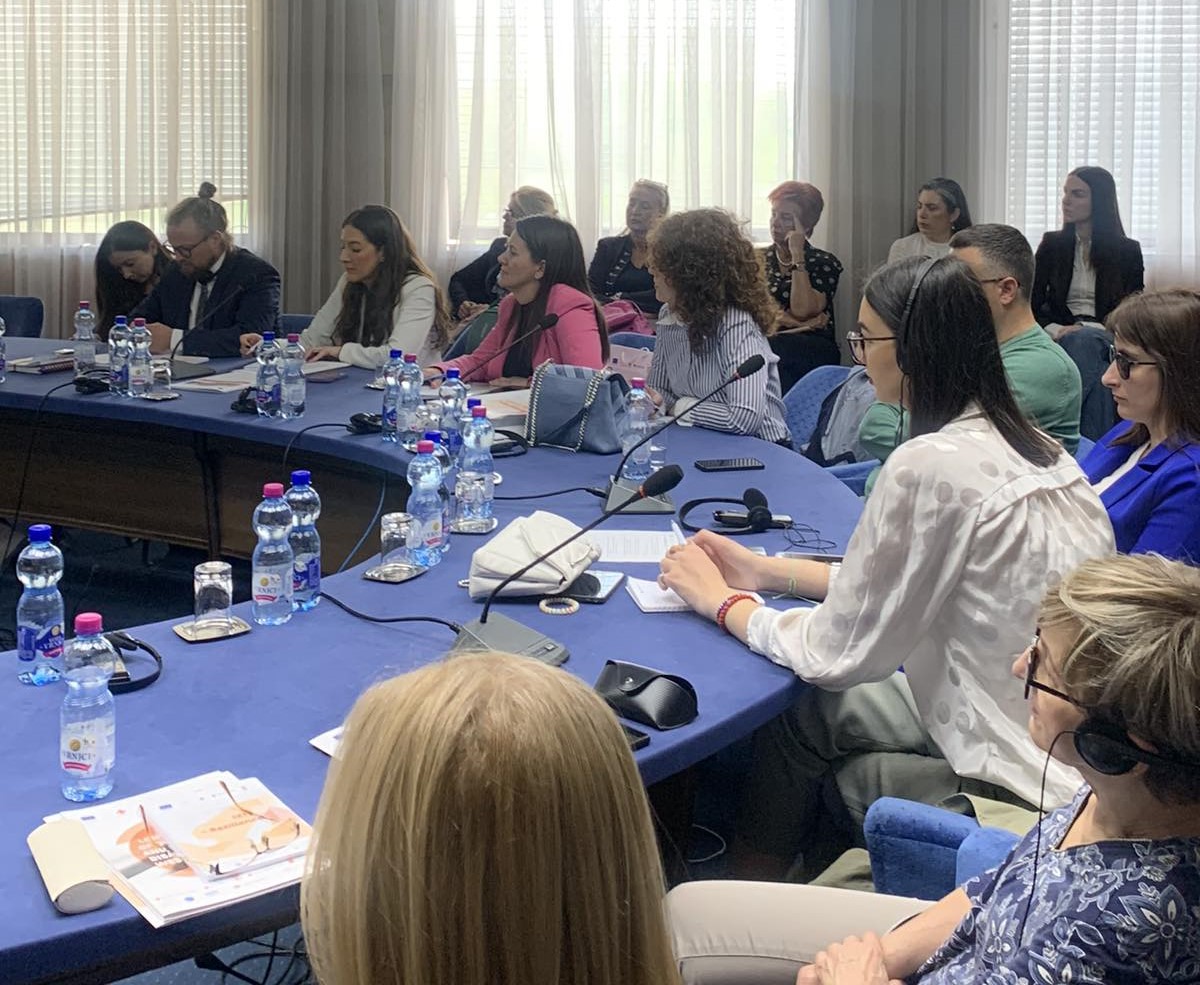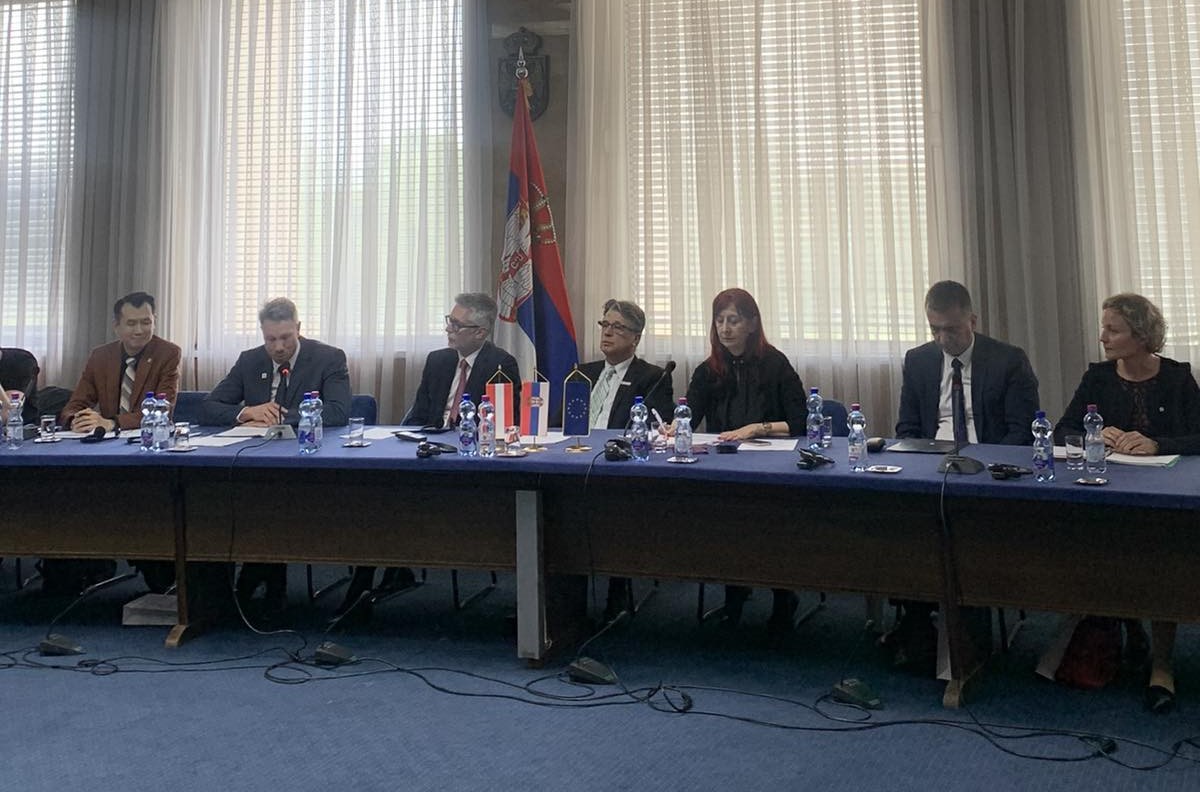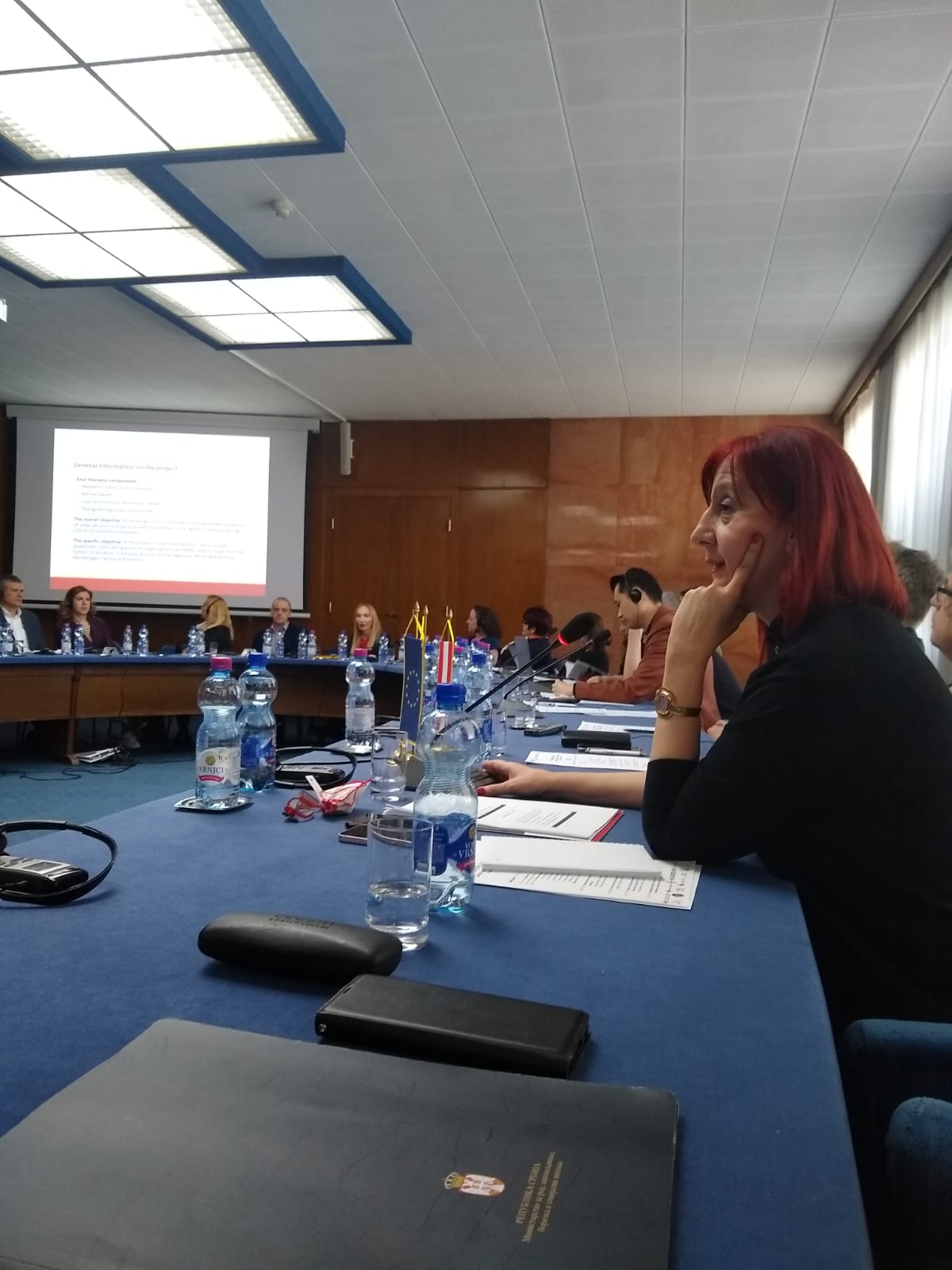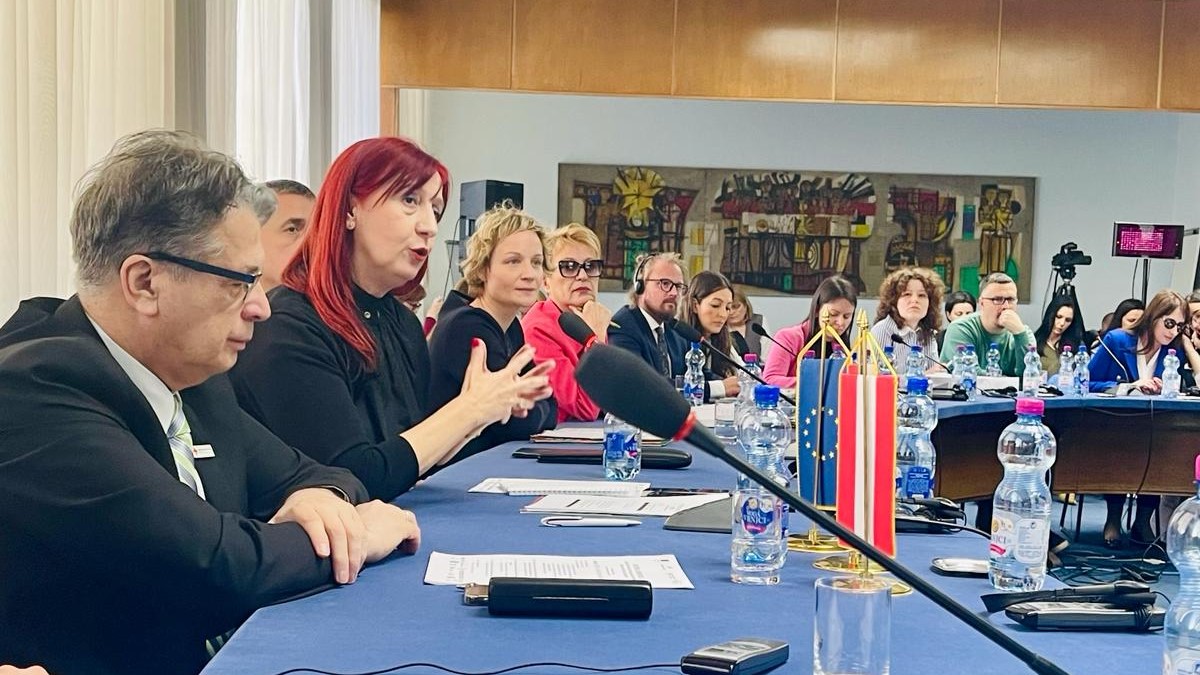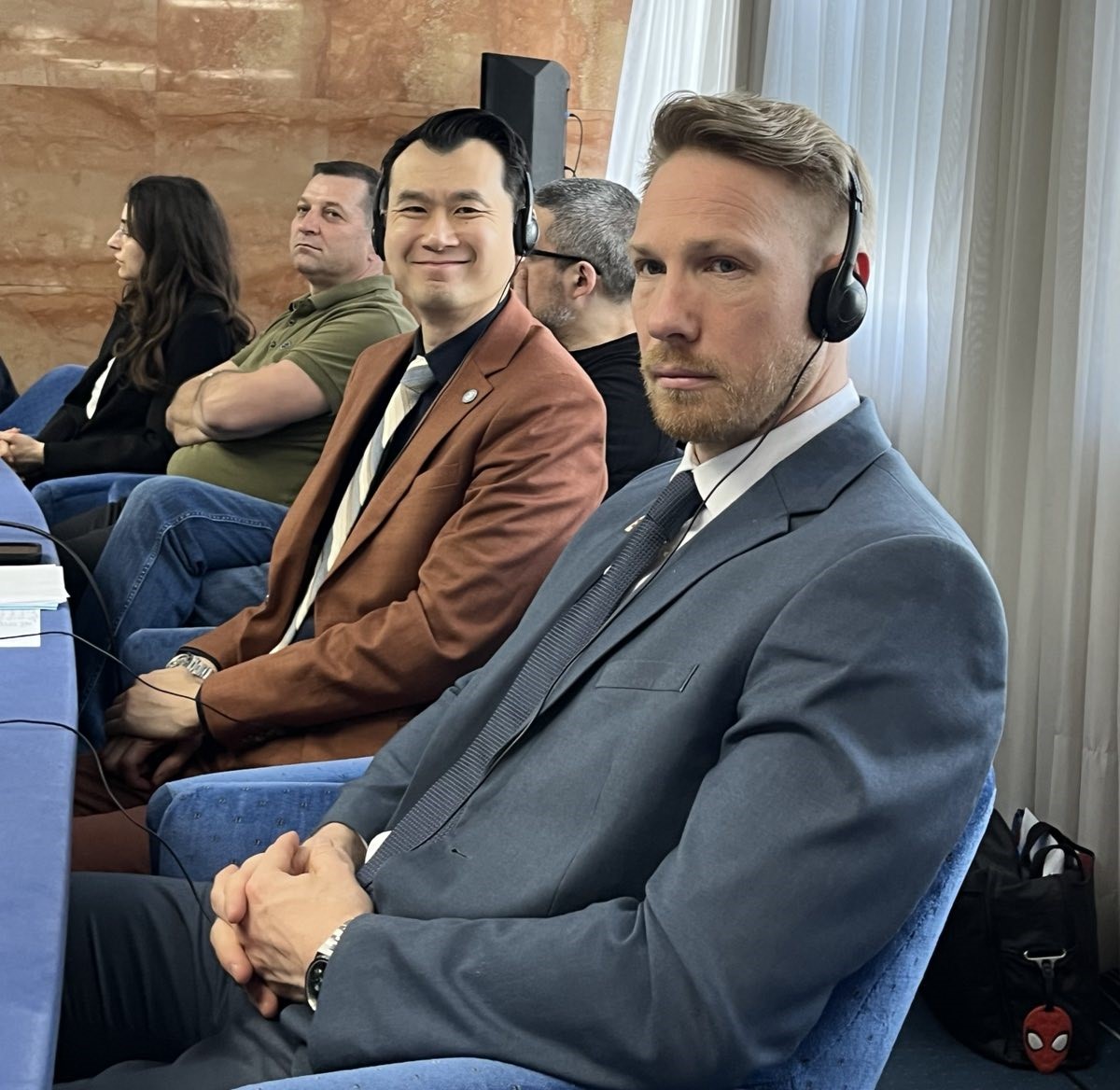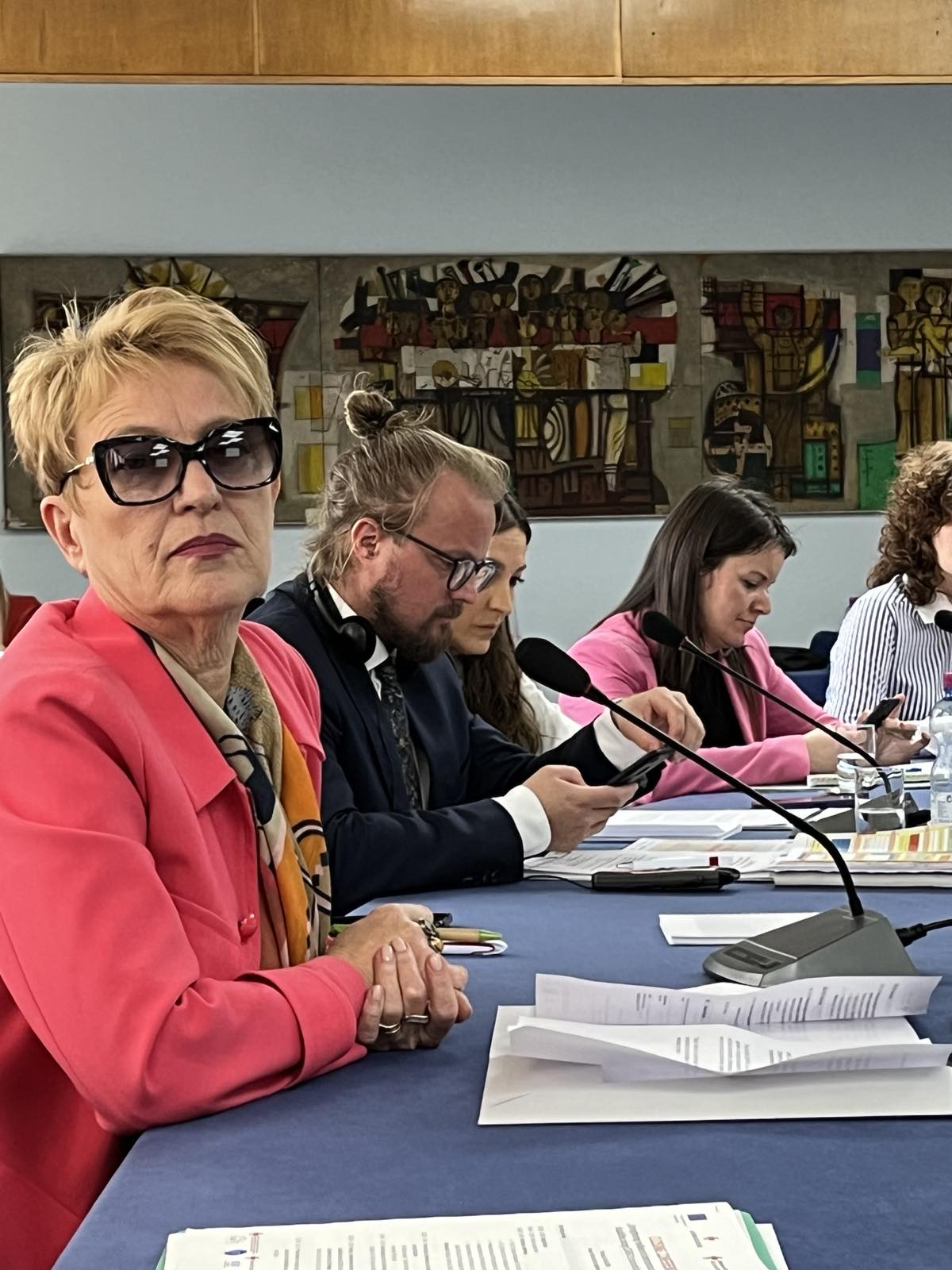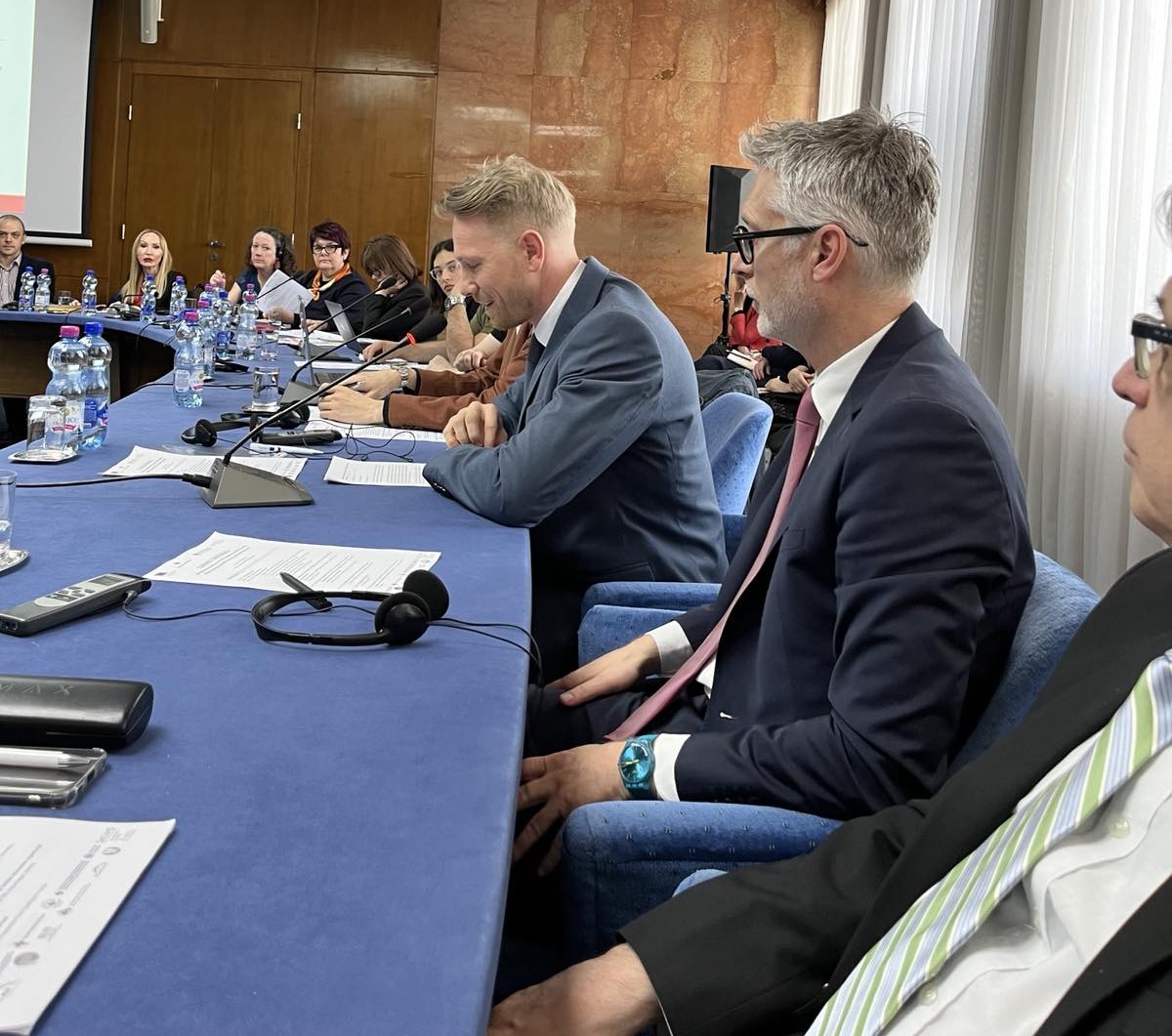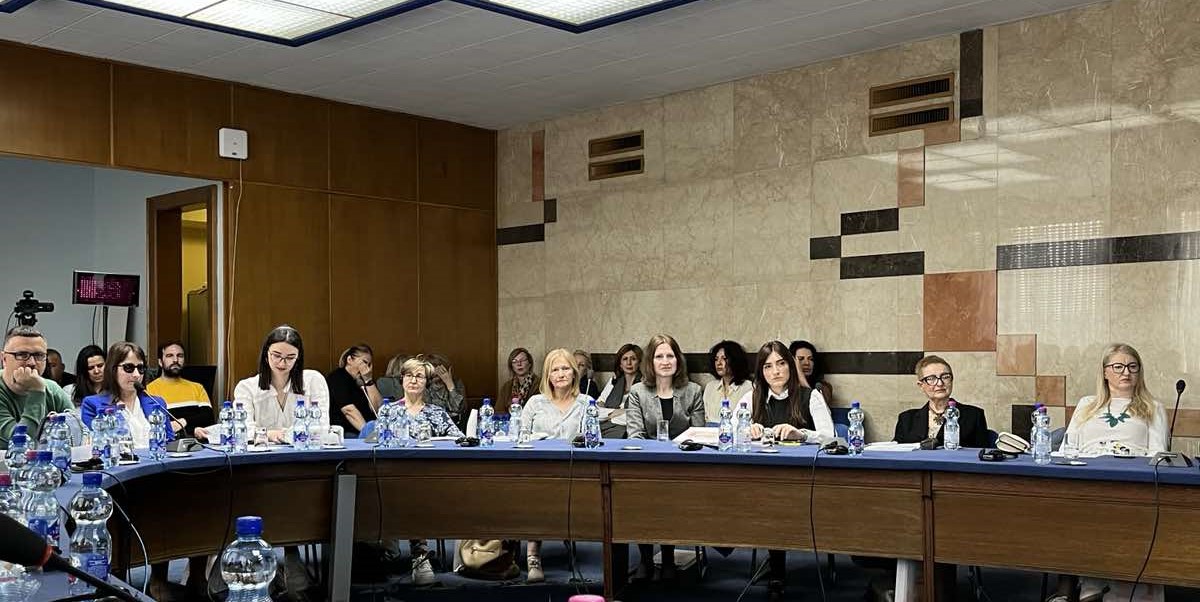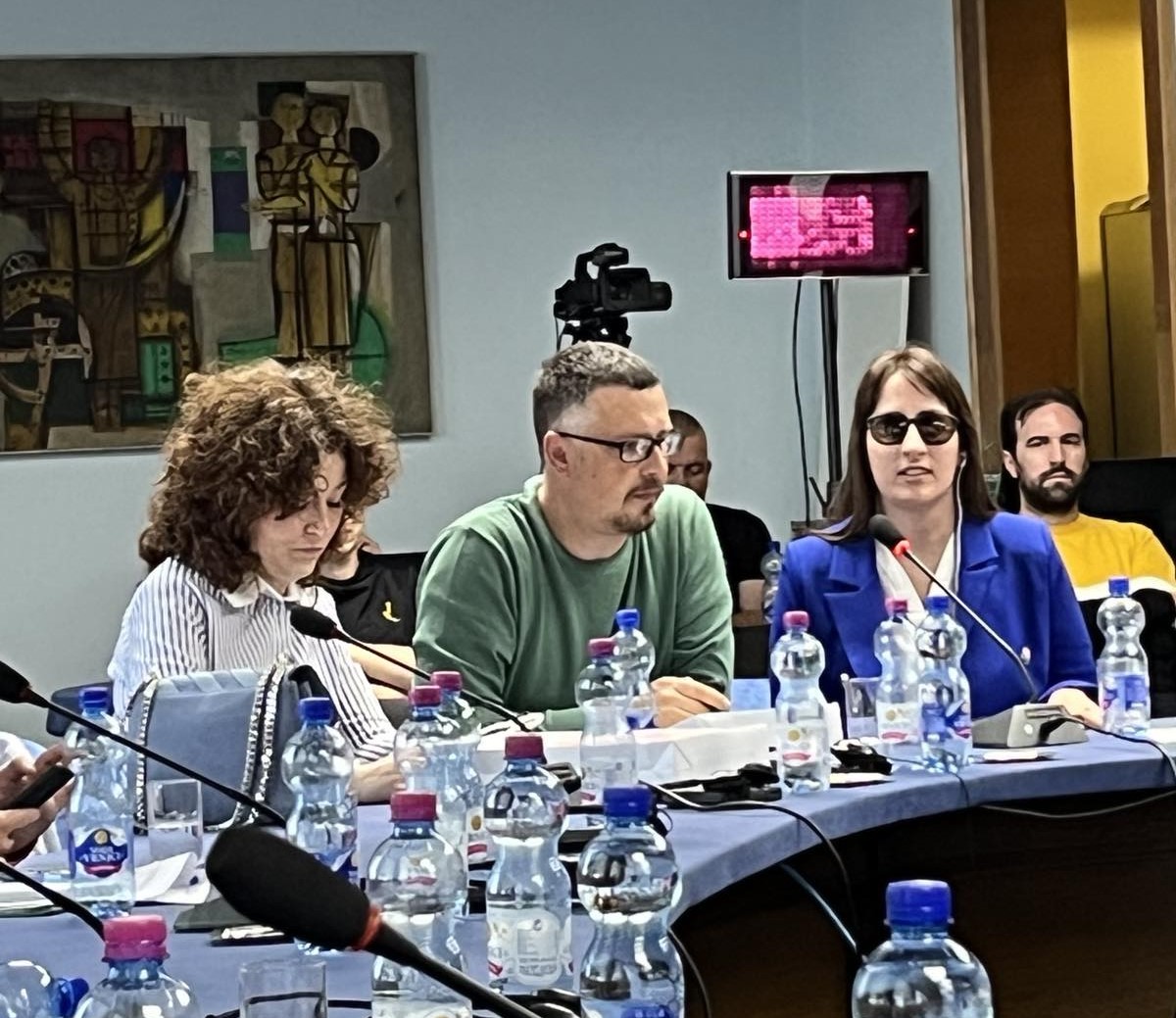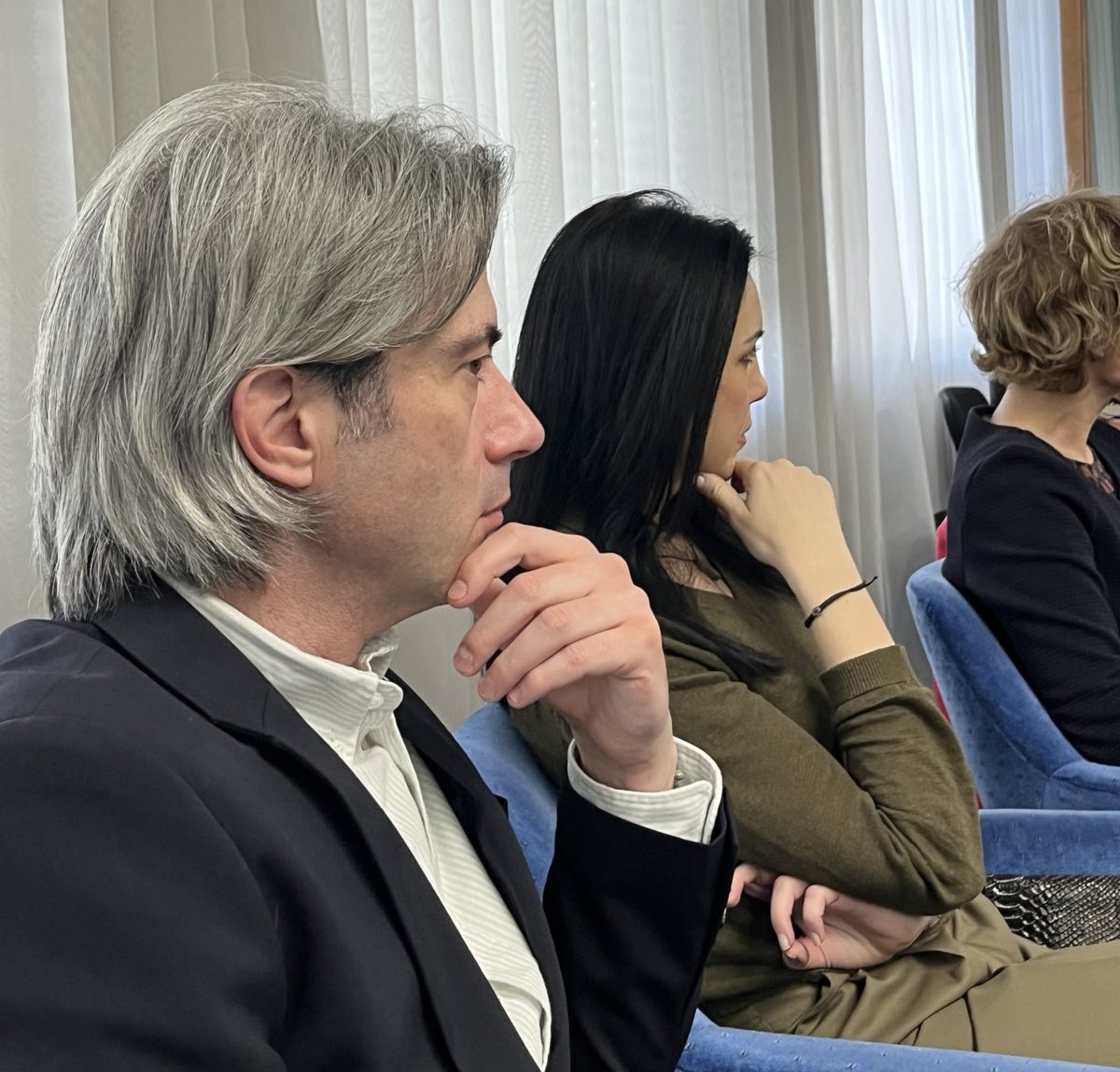- news
- the final conference of the project “strengthening resilience of older persons and persons with disabilities during the covid-19 crisis and future disasters” 2024
The final conference of the project “Strengthening resilience of older persons and persons with disabilities during the COVID-19 crisis and future disasters”

The conference of the project “Strengthening resilience of older persons and persons with disabilities during the COVID-19 crisis and future disasters” was organized on 4 April 2024 in the Palace of Serbia in Belgrade. This international event brought together over 70 people, project partners from the West Balkans region, representatives of the public sector, academia, civil sector, independent regulatory institutions, as well as professionals who work with older persons. The conference was organized as the final event of the project coordinated by the Red Cross of Serbia since November 2020 and with the support of the European Union and the Austrian Development Agency.
At the very opening of the conference, Ljubomir Miladinović the Secretary General of the Red Cross of Serbia spoke and pointed out that this project had a great impact on improving the position of older persons and persons with disabilities, as well as that its value was in strengthening the capacities of the National Red Cross Societies in the Western Balkans and civil society organization.
His Excellency Christian Ebner, Austrian Ambassador in Serbia emphasized the importance of continuous cooperation and support of the Austrian Agency for Development in strengthening the capacities of the Red Cross and civil society organizations in Serbia. Demographic aging is a global phenomenon, it affects all societies, but its effects are particularly visible in the northern hemisphere, especially on the European continent. This, of course, requires strategic action and recognition of the threats and opportunities related to demographic change, which is how societies adapt to ageing. This also often requires innovative approaches in adapting services to the needs of the population, as well as the use of modern technology in the service of care.
Saša Vukotić, special adviser to the Minister for Labour, Employment, Veteran and Social Affairs, pointed out that the Ministry is continuously working on improving the position of the older persons and persons with disabilities and that during the three-year implementation of the project, the Ministry participated in the implementation of some of the project's components.
Katarina Banićević, Austrian Red Cross representative pointed out that this project was an opportunity to improve further cooperation and showed how important it is to learn from each other.
Christoph Angster expert of the Federal Ministry of Social Affairs, Health, Care and Consumer Protection of the Republic of Austria spoke about the conclusions of the declaration of the International Conference on the Rights of Older Persons, 2023.
https://gds.org.rs/wp-content/uploads/2024/01/Deklaracija-ICHROP.pdf
Nataša Todorović from the Red Cross of Serbia presented the achievements of the project to the participants. Within the project, over 1900 workshops were organized in which 23,000 people participated. Also, 5,000 older persons and persons with disabilities received financial support, and 1,000 of them received food and hygiene packages. Research on the topic of long-term care was conducted using the same methodology in all six project locations, and based on that, an advocacy plan for long-term care was created. All partners had campaigns that were linked to the research. In Serbia, the campaign is still ongoing, so far the campaign called “Think about it” has been seen by over 1,300,000 people, and a conservative estimate is that by the end of the campaign, over 2,000,000 will be able to see it. A media analysis report was also developed looking into of how older persons and persons with disabilities are presented in the media, but also 57 organizations received small micro-grants that improved the position of older persons and persons with disabilities at local level.
Yongjie Yon, from the regional office of the World Health Organization spoke about Healthy Aging and the Decade of Healthy Aging.
Tijana Veljković from SeCons presented the results of research on access to long-term care services in the Western Balkans region with a special emphasis on informal caregivers. Research has shown that informal caregivers are the backbone of care, with little or no support from society.
Tina Aničić from UNFPA spoke about UNFPA's support in improving the position of older persons and persons with disabilities.
In the second part of the conference, all partners spoke about their achievements and challenges: the Albanian Red Cross and the Albanian Association of Geriatricians and Gerontologists, the Red Cross Society of Bosnia and Herzegovina and the Association HAJDE, the Red Cross of Montenegro and the Union of the Blind of Montenegro, the Red Cross of the Republic of North Macedonia and the Humanity Association, Caritas Kosova*, the Red Cross of Serbia and the National Organization of Persons with Disabilities of Serbia.
The conclusion of the conference is that we need partnerships at all levels in order to improve the quality of life of older persons and persons with disabilities. It is important to point out that mental health is just as important as physical health and that we need to fight the stigma when it comes to mental health and that it is important to emphasize that there is no shame in asking for help. The project showed that long-term care in our societies is still fragmented and that it is necessary to work on greater integration of services, that it is necessary to support the family, which provides support and help in 90% of cases. The project also showed that ageism and ableism are still present in our societies and that it is necessary to influence the public through campaigns and fight against these types of discrimination. Through the project, we managed to reduce the loneliness of a number of older persons and persons with disabilities, but also through financial support we managed to provide timely access to some of the health and social care services.
* This designation is without prejudice to positions on status and is in line with UNSCR 1244 and the ICJ opinion on Kosovo Declaration of Independence.
